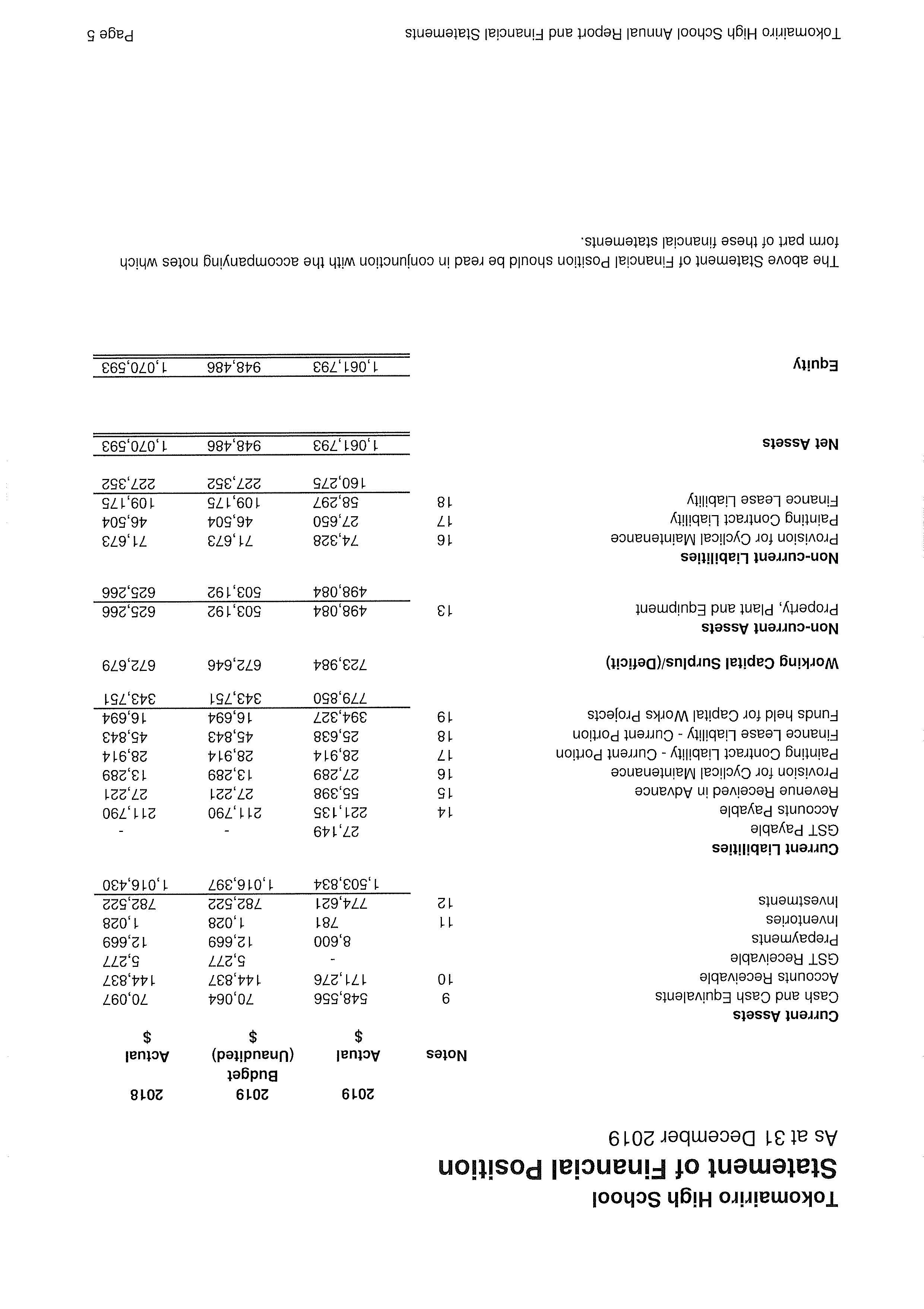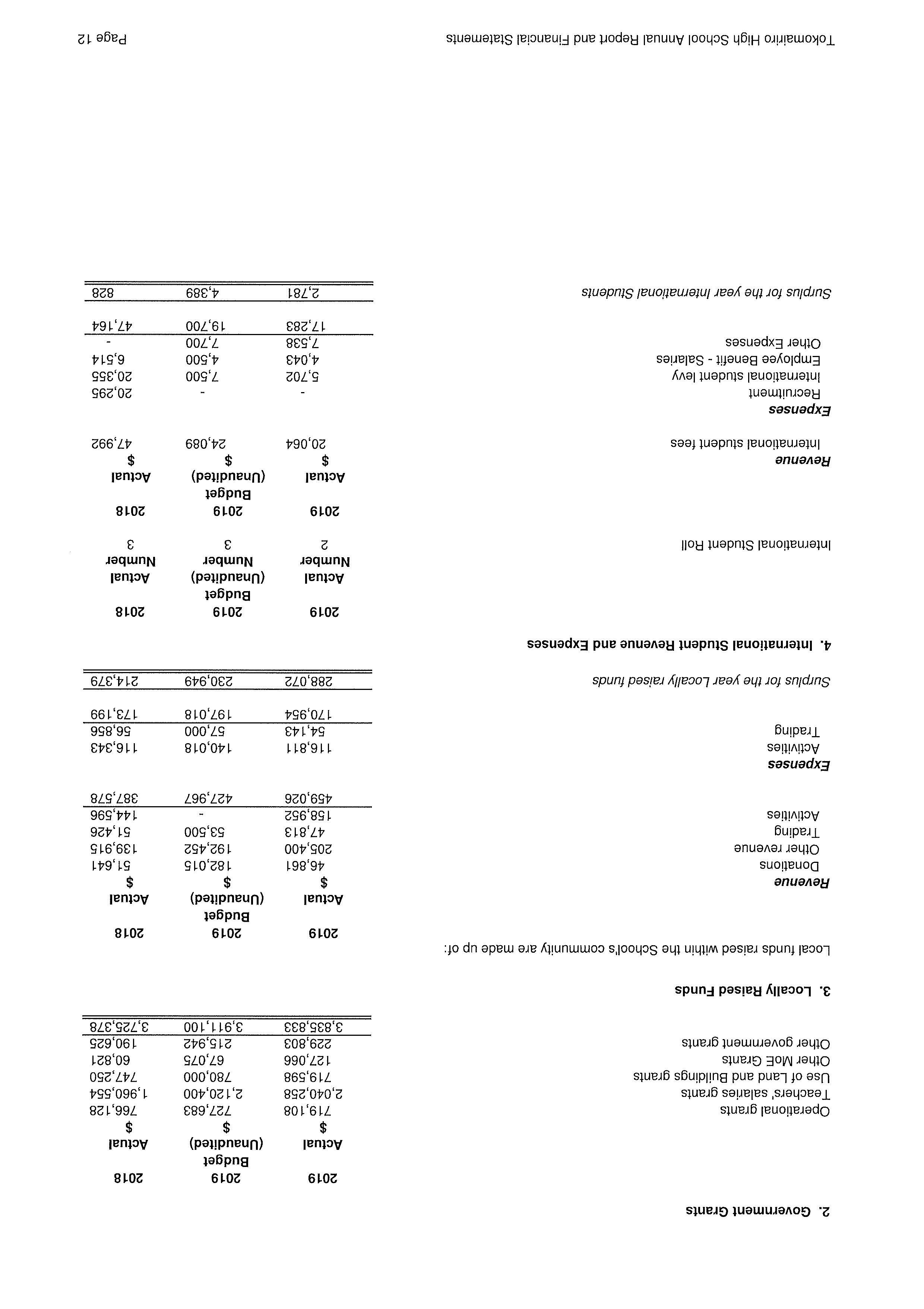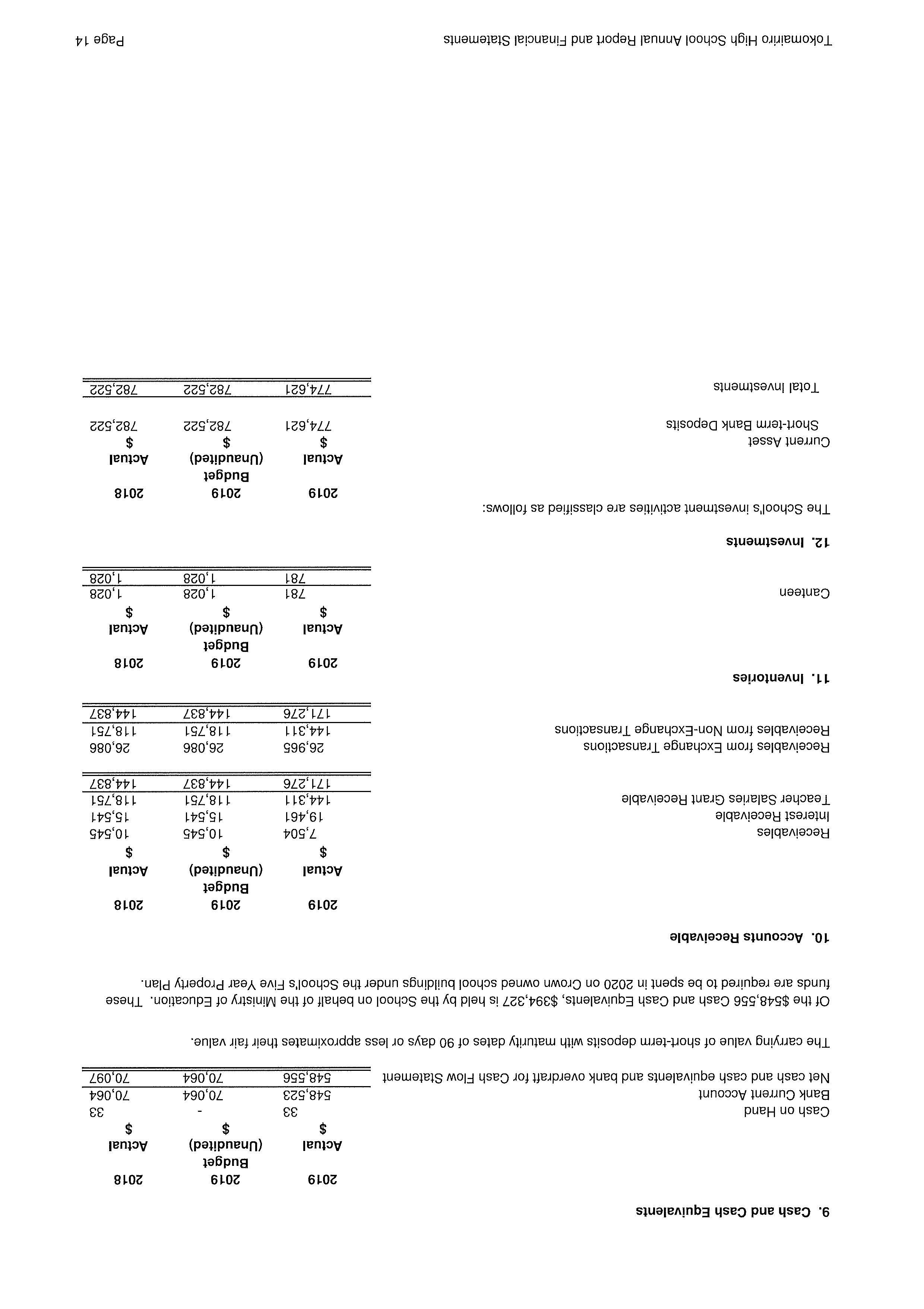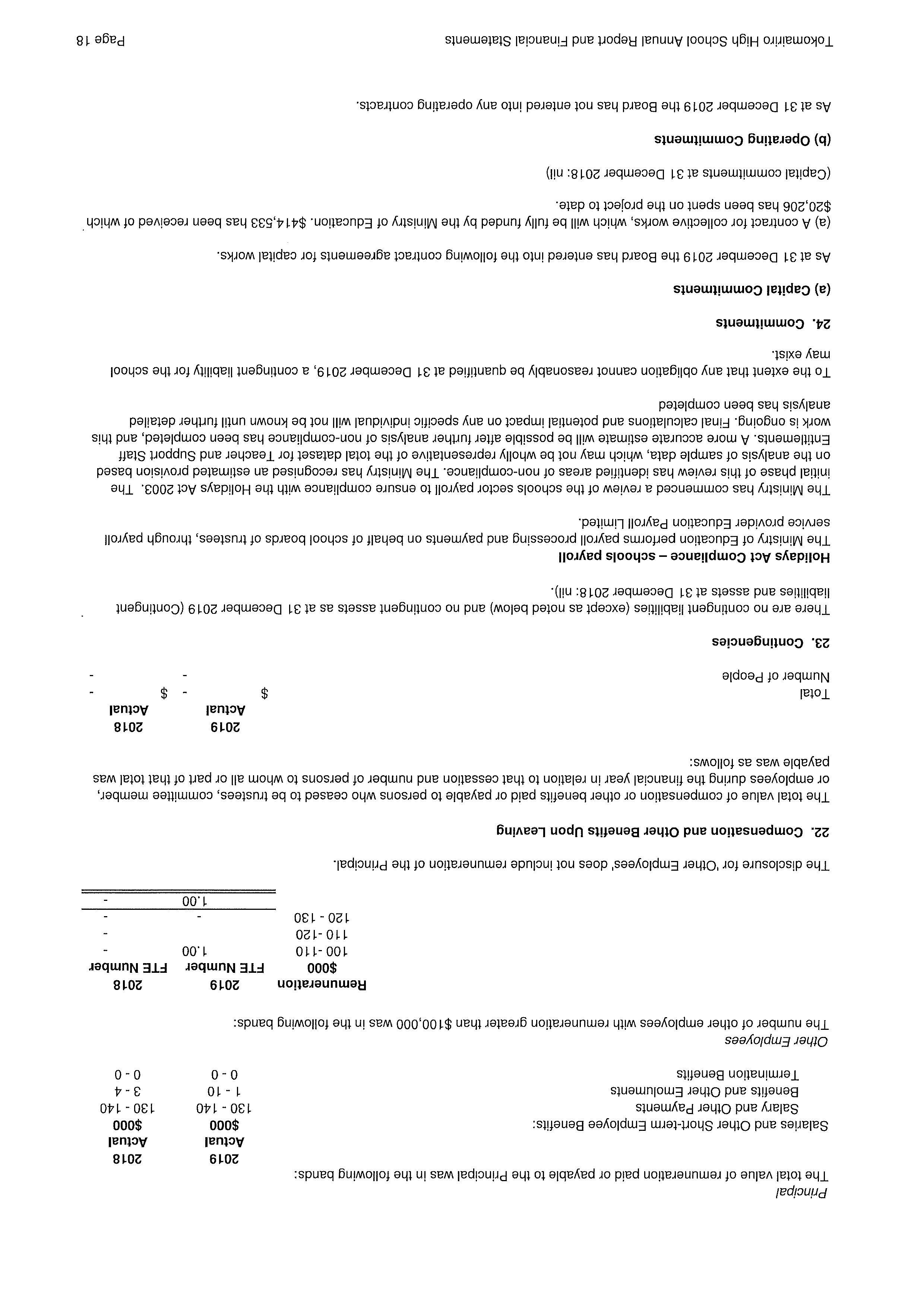




















School Name: Tokomairiro High School
School Number: 0392
Strategic Aim 1: Each student will receive an education that enables them to reach their highest level.
Annual Aim 1: Striving for personal Excellence - strive for an NCEA Endorsement Merit / Excellence.
Target: Level 2 Merit / Excellence endorsement at least equal to or better than 2018 Level 1 results.
Baseline Data: Baseline data: NCEA Level 1 Endorsements 2018
9 Excellence and 19 merit course endorsements.
7 (23%) students gained a Merit endorsement and 2 (6%) students gained Excellence endorsements.
For 2020 students aiming for NCEA endorsement will be identified during term 1 and a plan will be developed with them. These students will be monitored and mentored throughout the year.
Actions
What did we do?
Focus on personal excellence in all we do.
Writing across the curriculum continued to be an area of focus.
Early in the year identifying those students who needed to focus on achieving endorsements. Mentoring these students throughout the year, including developing a learning plan.
Careful monitoring of students’ progress through the year.
Planning for next year:
Outcomes What happened?
NCEA Endorsements:
31% (9) of level 2 candidates achieved an endorsement, 6 students gaining merit, 3 gaining excellence.
This is slightly better than the level 1 results for the same cohort (1 more Excellence/1 less Merit).
Course Endorsements:
6 students gained a total of 12 course endorsements – 2 excellence and 10 merit.
Reasons for the variance Why did it happen?
All the students who gained endorsements for Level 1 in 2018 gained the same endorsement for level 2 in 2019. Each of these students had a goal to achieve and endorsement.
Due to the change in the senior curriculum structure this year, it was more difficult for students to gain a course endorsement. Many students were only studying a subject for one semester rather than the whole year.
Evaluation Where to next?
Encouraging our students to continue to strive for personal excellence in all they do is a key to lifting the proportion of students who gain endorsements.
Individual goal setting and mentoring of students is need to support these students.
Goal setting with students early in the year. Careful monitoring of student progress through the year. Encourage all students to aim for personal excellence.
Strategic Aim 1: Each student will receive an education that enables them to reach their highest level.
Annual Aim 2: Year 7 – 10 students will strive for personal excellence.
Target: Move at least 2 more students to above in writing and mathematics at each of years 7 to 10.
Baseline Data:
Actions
What did we do?
Focus on personal excellence school wide.
A structured writing programme in the Homeroom programme supported student progress.
Year 10 Reading and Writing diploma embedded in English course.
School-wide focus on writing across the curriculum.
Students identified in each class and progress monitored.
Writing
Year 8 Progress: 28% (12) of year 8 students are above the expected level. This is the same number as in year 7 in 2018.
Year 9 Progress: achieved in terms of results, although further practice is needed by the students to ensure consolidation.
Year 10 Progress: achieved; practice should ensure consolidation.
Mathematics
Year 8 - 2 students moved from At to Above the expected level. Year 9 – 0 students above or well above.
Year 10 – 0 students above the expected level.
Target not met.
A change of reporting process occurred during 2019 - higher levels set for being classed “above the standard” .
Planning for next year:
Reasons
Striving for personal excellence has been a theme through the school year.
Writing:
Year 10 – expectations of where students need to be in year 10 requires a large move for many students. The continuum of expectation from year 7 through to year 10 needs to be more clearly set.
Careful monitoring students in Year 7 & 8 will be part of the writing programme for 2020.
Further refining of the continuum for writing from year 7 to 10 required.
Of the ten year 9 students who were above or well above in 2018, five moved from the school for 2019. There appears to be an inconsistency of achievement levels across year 8 to 9.
This will be an area of focus for 2020.
Personal excellence will continue to be a focus for next year. Writing programmes at year 10 will provide extension pathways for students.
Continuum of expectation across year 7 to 10 to be clarified for both Writing and Mathematics. Engagement of students in year 9 & 10 will be a focus for 2020.
Strategic Aim 2: Each student will make progress throughout their education through effective teaching, relationships, assessment and resourcing.
Annual Aim 3: Attendance rates will increase from 2018 rates across all year levels.
Target: Raise attendance levels across all year levels by 5 %.
Baseline Data: Year level 7 8 9 10 11 12 Overall
Actions
What did we do?
Monitored student attendance through House Group teachers, Deans and DP.
Contact made with home when levels of concern – HG teacher, deans, DP
Guidance Counsellor involved in cases of low attendance rates.
Attendance Services notified when attendance rates low.
Continue to be part of the Ministry Every Day Matters initiative.
Outcomes What happened?
Reasons for the variance Why did it happen? Evaluation Where to next?
Attendance monitoring is a part of the pastoral processes we have in place, however, we need did not involve families early enough in some situations.
Although we did not improve attendance by 5% across all year levels, we did see and overall improvement for the year.
Senior attendance rates definitely improved. Junior rates a concern, especially at year 8 and 9.
Planning
for next year:
Attendance monitoring will continue to be a focus area in 2020. Data will continue to be uploaded to Every Day Counts every term.
Careful monitoring of attendance data will occur from very early in the year.
HG teacher will be encouraged to follow up with the home.
Deans will be proactive in addressing attendance issues.
DP will frequently analyse attendance data. Celebrations of 100% attendance levels will occur in assembly each term.
Strategic Aim 2: Each student will make progress throughout their education through effective teaching, relationships, assessment and resourcing.
Annual Aim 4: Year 7 – 10 students will make progress against the curriculum levels.
Target: At least 2 students will move to the expected level in year 8 to 10 Writing and Mathematics.
Baseline Data:
Year 8 – mathematics teachers involved in ALiM PLD.
Year 9 – monitored student progress throughout the year.
Provided differentiated lessons. Subscribed to Education Perfect to support this process.
Writing programme in place for year 10 based on NCEA tasks.
Regular writing groups and activities for year 7.
Mathematics
Year 8 – 10% (4) are still below the expected level in mathematics. Of the 38 students, 22 students made good progress, 8 made significant progress. The remaining 5 students have not shown enough progress to move up a level.
20 of the 35 students in year 9 made progress on their level of achievement in mathematics. 9 students are still below and 2 well below the expected level.
Year 10 – 11 students are below the expected level for mathematics. They have all made progress from year 9.
Writing
y8 – 67% considered at or above the expected level. Y9 – 60% at or above expected level.
Y10 – Many students are still achieving at level 4 of the curriculum for writing and have not made the progress expected. However, 2 students did move from below to at the expected level at each year level
Planning for next year:
ALiM provided targeted intervention time for students at risk of not achieving ALiM supported further teacher development and understanding of targeted interventions. There was significant acceleration in the year 8 group and some acceleration in the year 7 and 10 groups.
Individualised programmes allowed for students to progress at own rate.
Year 9 Writing – the loss of students from the school from y8 to y9 really shows in this data –many of those students were above the standard
Year 10 Writing – this group was difficult to engage in the writing programme, especially the boys. A full review of the programme will occur for next year.
Regular monitoring of student progress in both Writing and Mathematics. Provide individualised support where-ever necessary.
Develop a continuum of expectations across year 7 to 10 in Writing. Use the PACT tool to support the understanding of curriculum levels.
Register for Education Perfect in 2020 (budget implication)
Make sure a regular programme of assessment / monitoring is in place for all classes.
Further develop the Writing programme and continuum of expectation across year 7 to 10.
Changes were made to the way assessment was recorded and reported during 2019. This will be further developed in 2020 to better show student progress.
Strategic Aim 2: Each student will make progress throughout their education through effective teaching, relationships, assessment and resourcing.
Annual Aim 5: Year 11 students will achieve required levels in writing and mathematics.
Target: 100 % of year 11 students will gain Level 1 Literacy and Numeracy.
Baseline Data: 2018: Year 10 Writing – 54% (14) below expected level, Year 10 Mathematics – 37% (10) below expected level.
Actions What did we do?
• Target students identified
• Close monitoring of target students
• Targeted interventions put in place
• Reporting system reviewed – now five weekly reports showing progress and engagement in learning.
Planning for next year:
Outcomes
What happened?
Reasons for the variance Why did it happen?
Evaluation Where to next?
Continue to closely monitor student progress and provided individualised support for those who need it.
Close monitoring of the student progress allowed programmes to be put in plan to support those at risk of not achieving enough Literacy and Numeracy credits.
Continue to carefully monitor student progress. Provide individualised pathways for our students.
Provide alternative courses through Gateway
NCEA Level 1 – 100% of the candidates achieved both Literacy and Numeracy in 2019. A new modular system in the senior school led to a focus on achieving the literacy and numeracy during semester one.Strategic Aim 3: Parents, family and whanau are actively engaged in supporting the mission and values of our school.
Annual Aim 6: Parents are engaged in our school with frequent communication occurring between parents and teachers.
Target: All families/whanau will be contacted at least once per term.
Baseline Data: Student parent teacher interviews occurred twice during the year. Numbers at the second interview were very small.
House Group teachers in contact with parents at beginning of year. Some parents had very little contact again through the year.
Actions
What did we do?
All parents are contacted by the young person’s house group teacher. Regular communication between HG teacher and home encouraged. Regular feedback to whanau regarding junior diploma progress. Encourage whanau to access the parent portal to follow student progress and attendance.
Parent student teacher meetings occurred three times during the year.
Parent/whanau survey sent to all families. Analysed data report sent to all families Parents encouraged to be involved in student sports.
Newsletter – Genesis, Skool Loop, Website, School Facebook used to inform parents
Planning for next year:
Outcomes What happened?
More parents attended parent / student / teacher meetings.
Regular phone calls home.
Some parents still felt they didn’t know about things that were happening.
Reasons for the variance Why did it happen?
House Group teachers contacted home more often leading to better relationships.
Some activities were not advertised to parents far enough ahead of time.
School Events diary and public diary need to have all events registered.
Evaluation Where to next?
Communication with home will remain a priority for next year.
We value the connection parent / student/teacher in the learning journey of each child.
More training is needed for some house group teachers in terms of mentoring / goal setting practices.
Encourage Parents / whanau to be engaged with school activities – eg kapa haka, sports, music, etc
HG teachers contact whanau regarding Junior Diploma progress. Parents / whanau are encouraged to take part in consultation groups.
Parents / whanau are listened to and ideas valued.
Parent / student / teacher conferences held twice during the year with HG teachers and twice with subject teachers.
Kiwisport
Kiwisport is a Government funding initiative to support students’ participation in organised sport.
During 2019, Tokomairiro High School received a total Kiwisport funding of $4726 50 (excl GST)
The funding was spent on the Sports Coordinator’s wages, outside sports coaches and additional sporting equipment.

Tel: +64 3 218 2959
Toll Free: 0800 182 959
Fax: +64 3 218 2092
invercargill@bdo.co.nz www.bdo.co.nz BDO INVERCARGILL 136 Spey Street P O Box 1206
Invercargill 9840, New Zealand
INDEPENDENT AUDITOR’S REPORT
TO THE READERS OF TOKOMAIRIRO HIGH SCHOOL’S FINANCIAL STATEMENTS FOR THE YEAR ENDED 31 DECEMBER 2019
The Auditor-General is the auditor of Tokomairiro High School (the School). The Auditor-General has appointed me, Aaron Higham, using the staff and resources of BDO Invercargill, to carry out the audit of the financial statements of the School on his behalf.
Opinion
We have audited the financial statements of the School on pages 3 to 19, that comprise the statement of financial position as at 31 December 2019, the statement of comprehensive revenue and expense, statement of changes in net assets/equity and statement of cash flows for the year ended on that date, and the notes to the financial statements that include accounting policies and other explanatory information.
In our opinion the financial statements of the School:
• present fairly, in all material respects:
o its financial position as at 31 December 2019; and
o its financial performance and cash flows for the year then ended; and
• comply with generally accepted accounting practice in New Zealand in accordance with Public Sector – Public Benefit Entity Standards, Reduced Disclosure Regime.
Our audit was completed on 29 May 2020. This is the date at which our opinion is expressed.
The basis for our opinion is explained below. In addition, we outline the responsibilities of the Board of Trustees and our responsibilities relating to the financial statements, we comment on other information, and we explain our independence.
Emphasis of Matter – COVID-19
Without modifying our opinion, we draw attention to the disclosures in note 27 on page 19 which outline the possible effects of the Alert Level 4 lockdown as a result of the COVID-19 pandemic.
Basis for our opinion
We carried out our audit in accordance with the Auditor-General’s Auditing Standards, which incorporate the Professional and Ethical Standards and the International Standards on Auditing (New Zealand) issued by the New Zealand Auditing and Assurance Standards Board. Our responsibilities under those standards are further described in the Responsibilities of the auditor section of our report.
We have fulfilled our responsibilities in accordance with the Auditor-General’s Auditing Standards.
We believe that the audit evidence we have obtained is sufficient and appropriate to provide a basis for our opinion.

Tel: +64 3 218 2959
Toll Free: 0800 182 959
Fax: +64 3 218 2092
invercargill@bdo.co.nz www.bdo.co.nz
Responsibilities of the Board of Trustees for the financial statements
136 Spey Street P O Box 1206
Invercargill 9840, New Zealand
The Board of Trustees is responsible on behalf of the School for preparing financial statements that are fairly presented and that comply with generally accepted accounting practice in New Zealand. The Board of Trustees is responsible for such internal control as it determines is necessary to enable it to prepare financial statements that are free from material misstatement, whether due to fraud or error.
In preparing the financial statements, the Board of Trustees is responsible on behalf of the School for assessing the School’s ability to continue as a going concern. The Board of Trustees is also responsible for disclosing, as applicable, matters related to going concern and using the going concern basis of accounting, unless there is an intention to close or merge the School, or there is no realistic alternative but to do so.
The Board of Trustees’ responsibilities arise from the Education Act 1989.
Responsibilities of the auditor for the audit of the financial statements
Our objectives are to obtain reasonable assurance about whether the financial statements, as a whole, are free from material misstatement, whether due to fraud or error, and to issue an auditor’s report that includes our opinion.
Reasonable assurance is a high level of assurance, but is not a guarantee that an audit carried out in accordance with the Auditor-General’s Auditing Standards will always detect a material misstatement when it exists. Misstatements are differences or omissions of amounts or disclosures, and can arise from fraud or error. Misstatements are considered material if, individually or in the aggregate, they could reasonably be expected to influence the decisions of readers taken on the basis of these financial statements.
For the budget information reported in the financial statements, our procedures were limited to checking that the information agreed to the School’s approved budget.
We did not evaluate the security and controls over the electronic publication of the financial statements.
As part of an audit in accordance with the Auditor-General’s Auditing Standards, we exercise professional judgement and maintain professional scepticism throughout the audit. Also:
• We identify and assess the risks of material misstatement of the financial statements, whether due to fraud or error, design and perform audit procedures responsive to those risks, and obtain audit evidence that is sufficient and appropriate to provide a basis for our opinion. The risk of not detecting a material misstatement resulting from fraud is higher than for one resulting from error, as fraud may involve collusion, forgery, intentional omissions, misrepresentations, or the override of internal control.
• We obtain an understanding of internal control relevant to the audit in order to design audit procedures that are appropriate in the circumstances, but not for the purpose of expressing an opinion on the effectiveness of the School’s internal control.
• We evaluate the appropriateness of accounting policies used and the reasonableness of accounting estimates and related disclosures made by the Board of Trustees.
• We conclude on the appropriateness of the use of the going concern basis of accounting by the Board of Trustees and, based on the audit evidence obtained, whether a material uncertainty exists related to events or conditions that may cast significant doubt on the School’s ability to continue as a going concern.

Tel: +64 3 218 2959
Toll Free: 0800 182 959
Fax: +64 3 218 2092
invercargill@bdo.co.nz www.bdo.co.nz
136 Spey Street P O Box 1206
Invercargill 9840, New Zealand
If we conclude that a material uncertainty exists, we are required to draw attention in our auditor’s report to the related disclosures in the financial statements or, if such disclosures are inadequate, to modify our opinion. Our conclusions are based on the audit evidence obtained up to the date of our auditor’s report. However, future events or conditions may cause the School to cease to continue as a going concern.
• We evaluate the overall presentation, structure and content of the financial statements, including the disclosures, and whether the financial statements represent the underlying transactions and events in a manner that achieves fair presentation.
• We assess the risk of material misstatement arising from the Novopay payroll system, which may still contain errors. As a result, we carried out procedures to minimise the risk of material errors arising from the system that, in our judgement, would likely influence readers’ overall understanding of the financial statements.
We communicate with the Board of Trustees regarding, among other matters, the planned scope and timing of the audit and significant audit findings, including any significant deficiencies in internal control that we identify during our audit.
Our responsibilities arises from the Public Audit Act 2001.
Other information
The Board of Trustees is responsible for the other information. The other information comprises the analysis of variance, kiwisport paragraph and BOT listing included on pages 20 to 26 and page 2 respectively, but does not include the financial statements, and our auditor’s report thereon.
Our opinion on the financial statements does not cover the other information and we do not express any form of audit opinion or assurance conclusion thereon.
In connection with our audit of the financial statements, our responsibility is to read the other information. In doing so, we consider whether the other information is materially inconsistent with the financial statements or our knowledge obtained in the audit, or otherwise appears to be materially misstated. If, based on our work, we conclude that there is a material misstatement of this other information, we are required to report that fact. We have nothing to report in this regard.
Independence
We are independent of the School in accordance with the independence requirements of the Auditor-General’s Auditing Standards, which incorporate the independence requirements of Professional and Ethical Standard 1 (Revised): Code of Ethics for Assurance Practitioners issued by the New Zealand Auditing and Assurance Standards Board.
Other than the audit, we have no relationship with or interests in the School.
Aaron Higham BDO InvercargillOn
behalf ofthe
Auditor-General Invercargill, New Zealand